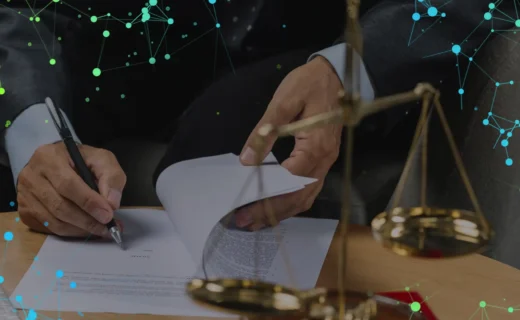Lawyer for Interrogation
Interrogation is a key stage in any criminal proceeding where the importance of legal protection during this process cannot be overstated. During interrogation, whether as a suspect, accused, or witness, one may be subjected to detailed and often intense questioning by law enforcement authorities. This is a critical moment when the right approach and the support of a lawyer can significantly influence the further course of the case.
The Importance of Providing Legal Assistance During Interrogation
Legal assistance during interrogation is extremely important because it ensures the protection of individual rights and the legality of the process. It helps to avoid violations such as forced confessions or unlawful pressure, which could negatively affect the outcome of the case.
In addition, legal assistance helps in the proper formulation of responses, ensuring a fair consideration of the case and preventing potential mistakes that may affect future court proceedings.
Why the Presence of a Lawyer at an Interrogation is Crucial for Protecting the Client’s Rights
The presence of a lawyer during interrogation is crucial because they:
- Ensure that the client’s rights are upheld during interrogation, such as the right to remain silent, the right not to incriminate oneself, and the right to defense.
- Help the client prepare for the interrogation by explaining how to answer questions and how to avoid self-incrimination.
- Ensure that the interrogation is conducted within the law, checking that all procedural norms and the client’s rights are respected.
- Protect the client from psychological pressure or manipulation that may arise during the interrogation.
After the interrogation, the lawyer analyzes the results, which allows for an accurate assessment of how the procedure may affect the case and to determine the defense strategy for the subsequent stages of the process. If the client’s rights are violated during the interrogation or if there are other issues, the lawyer can promptly respond by filing complaints or motions to protect the client’s interests.
What is Interrogation and Its Significance in the Criminal Process
Interrogation is one of the elements of the criminal process through which testimonies are collected from individuals who have information about the events being investigated. It allows for the clarification of facts, details, and circumstances that may influence the outcome of the case.
The role of interrogation in establishing the facts of the case lies in its ability to provide prosecutors, investigators, or lawyers with direct information from participants, witnesses, or suspects. This helps build an evidentiary base, verify alibis, identify contradictions in testimonies, and uncover the truth.
Legal Grounds for Conducting Interrogation
The legal grounds for conducting interrogations in criminal proceedings are established by law. Interrogations are conducted in cases where there is:
- Suspicion or accusation of a person committing a crime;
- A need to clarify the circumstances of the case, confirm or refute provided information, obtain new evidence or testimonies;
- A decision by an investigator or prosecutor determining the necessity of this process to gather evidence or verify facts;
- A court request for interrogation as part of a trial to clarify the circumstances of the case.
Legislative Norms Regulating Interrogation
The main legal document that regulates the procedure for conducting interrogations in detail is the Criminal Procedure Code of Ukraine. Specifically, Chapter XII “Examination of Evidence” contains provisions on interrogation, its types, and procedures. Articles 224-228 of the CPC define the rules for conducting interrogations.
Other important legislative acts include:
- The Law “On Advocacy and Legal Practice.” It regulates the rights of a lawyer during interrogation, including the right to participate in interrogations to protect the client’s interests.
- The Law “On Human Rights and Freedoms.” It ensures the general rights of persons who may be interrogated and guarantees for individuals involved in criminal proceedings.
- The Constitution of Ukraine. It guarantees fundamental human rights and freedoms, which are also relevant to procedural actions, including interrogations.
Rights and Obligations of Interrogation Participants
Rights of the suspect or accused:
- The right to defense;
- The right not to testify against oneself;
- The right to information.
Rights of witnesses:
- The right to refuse to testify;
- The right to defense;
- The right to compensation.
Rights of the victim:
- The right to participate in interrogations;
- The right to file statements.
Obligations of the suspect or accused:
- To provide truthful testimony;
- To appear for interrogations.
Obligations of witnesses:
- To provide truthful testimony;
- To appear for interrogations.
Obligations of the victim:
- To provide information;
- To appear for interrogations.
The Role of a Lawyer During Interrogation
Pre-Interrogation Consultations
Before the interrogation, the lawyer carefully analyzes the situation to develop an effective defense strategy for the client. This includes assessing all possible scenarios, potential questions, and situations that may arise during interrogation. The lawyer determines which arguments and facts are important for the defense and how best to present them.
The lawyer conducts a thorough preparation of the client for the interrogation. This includes explaining the rights and obligations the client has, as well as strategies for conduct during the interrogation. The specialist instructs the client on how to answer questions correctly, avoid unnecessary details, and refrain from giving testimony that could compromise them. Preparation may also include psychological support to reduce the client’s stress and anxiety.
The lawyer provides recommendations on how to respond to potential questions that may be asked during the interrogation. This includes instructions on how to answer questions without breaking the law while avoiding providing excessive information that may negatively affect the case. The specialist also helps the client determine when it is better to refuse to answer a question if it is provocative or may lead to self-incrimination.
The Lawyer’s Presence During Interrogation
The lawyer’s presence during interrogation is a key factor in ensuring the legality of the process. They monitor that all procedures comply with the law, which helps avoid possible violations of the client’s rights. They also ensure that the interrogation is conducted in accordance with established rules and norms, ensuring the legality of all actions.
The lawyer plays an important role in protecting the client’s rights during interrogation. They ensure that the client is not subjected to pressure or unlawful actions by investigative authorities. If attempts to violate the client’s rights or apply unlawful pressure arise, the lawyer takes measures to prevent such actions and protects the interests of their client.
The specialist is also responsible for documenting any violations that may occur during the interrogation. This includes monitoring the actions of investigators and recording violations. In addition, the lawyer provides real-time consultations to the client, helping them adjust their responses and react to the situation in line with the developed defense strategy.
Lawyer’s Rights During Interrogation
- The right to be present and participate in all investigative actions.
- The right to ask clarifying questions and object to improper actions by investigators.
Procedural Rights and Obligations of the Client During Interrogation
During interrogation, the suspect or witness has the right to:
- Remain silent and refuse to provide testimony;
- Receive legal assistance.
Obligations of the suspect or witness:
- Comply with the lawful demands of the investigator;
- Provide truthful testimony if they decide to answer questions.
The Importance of Professional Support During Interrogation
Professional support from a lawyer during interrogation is critically important for ensuring the legality and objectivity of the procedure. The lawyer monitors the protection of the client’s rights and the proper conduct of the interrogation, preventing possible violations by investigative authorities. They also ensure that the questions are clear and do not violate the rights of the suspect or witness.
Professional support includes preparation for subsequent stages of the investigation. The lawyer collects necessary evidence and information that may be used at later stages of the case. Based on the results of the interrogation, they develop a defense strategy for the court hearing. Analyzing the collected evidence and interrogation materials helps identify key points for further defense.
The results of the interrogation are used to form an effective defense strategy. The specialist analyzes the information obtained and develops an action plan that allows for the best possible protection of the client from potential negative consequences. This helps ensure the best possible outcome in court.
The legal firm Dextra Law specializes in providing highly qualified services in the field of criminal law. Our lawyers have extensive experience in handling criminal cases of varying complexity. We know all the intricacies of the legal process and can effectively protect your interests at all stages of investigation and court proceedings.
We take into account all the specifics of your situation and develop a defense strategy that best meets your needs. Your rights and interests are our priority. Do not risk your rights and freedom. Contact Dextra Law for professional legal assistance!




